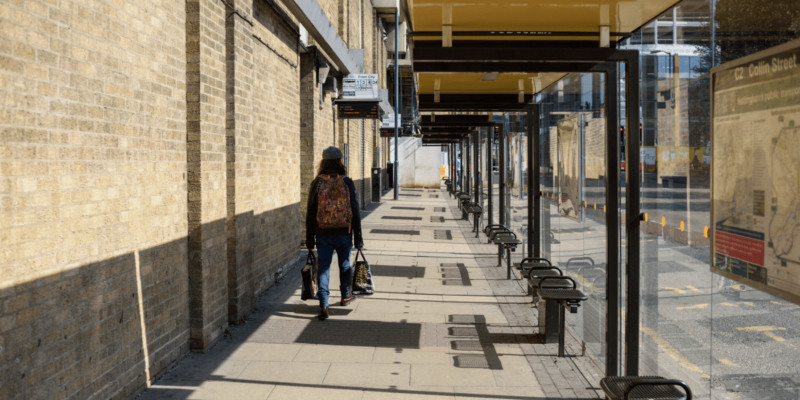Three reasons to be positive
The impact of the coronavirus (COVID-19) is unprecedented in modern times. The virus is more virulent than seasonal flu and a vaccine is not yet available. It is putting immense pressure on our health systems.
We are all adjusting to the restrictions that have been put into place to fight the coronavirus. While the measures imposed vary by country, in many cases we have been asked to stay at home, not go into work, and not socialise with people from outside our household. When we do go out there are strict rules that we need to follow. This puts us in a strange place: We are used to valuing our freedom and social contact.
Most sectors have companies that are encountering financial strain. Workers are being asked not to come in by firms that have faced a cliff-fall in demand (a policy we now know as ‘furloughing’—a term not previously used in day-to-day conversation). Governments are introducing almost unparalleled initiatives to mitigate the impacts on businesses and workers.
However, there is a positive side.
The current limitations provide opportunities to do things differently and, potentially in the longer term, to do things better. Here we take a look at three reasons to be positive: messy innovation; adaption; and adoption.
Why is innovation messy?
The COVID-19 pandemic is frequently referred to as a ‘black swan’ event—a major game-changing event that catches a large number of people by surprise (even when alarm bells are being sounded by those in the know).1
In 2016, the economist Tim Harford released the book Messy: How to Be Creative and Resilient in a Tidy-Minded World.2 His central message is that, when we are hit by a big shock, the limitations that this places on us lead to us being creative and thinking of new ways of doing things.
In turn this can move us from the status quo ‘local’ optimum (from which incremental changes do not result in significantly better outcomes) to a superior ‘global’ optimum (which is the result of a bigger change, and which makes us much better off).
Normally, it is difficult to move to the global optimum due to inertia and network effects.
- Inertia stems from habit. In ‘business as usual’ situations, we often innovate within the existing template. We may not have the impetus to undertake ground-breaking innovation—in particular if this costs money and others are not incurring these upfront costs. Any attempt to climb out of the pit means we slip back in. We need a shove to help us to escape.
- Network effects make change harder without coordination. Things are slow to change when we are all co-dependent and locked into the existing way of doing things. Think of the QWERTY keyboard. This isn’t the fastest keyboard layout—yet I use it because everyone else uses it, and the standard has become locked into almost all devices with keyboards.
To escape the status quo requires a big shove (an inertia buster) that affects everybody (a network effect buster).
The reaction to COVID-19 has been significant (overcoming inertia), and universal (overcoming network effects). Messy innovation is happening, and we are seeing new collaborations between firms. Formula 1 teams are making ventilators in collaboration with universities. Perfume-makers and breweries are making hand sanitiser. Diving masks are being converted into breathing equipment. 3D printing has enabled home workers to get involved—a friend of mine (a product designer) is printing straps for NHS face masks in his home.
Adaption—home sweet home?
The current stay-at-home situation and social distancing has also led to a big shove towards home working—another example of messy innovation. While this is not easy for everybody, it does have upsides (e.g. more time with the family, greater autonomy, reduced travel costs, reduced pollution).
Working from home may or may not be possible depending on the kind of work we do. Home working may suit office workers, but not construction workers. However, many will benefit from a greater long-term flexibility and capacity to work from home.
In the meantime, here are two positive lessons from behavioural economics, to encourage those of us who might be less happy with working from home.
Behavioural economics shows that the way in which information is provided to us—how it is framed—matters, beyond just the substance of the information. Rather than dwelling on the negatives, we can reframe the situation in our own minds: as an opportunity to do things differently, and to connect with people we hadn’t previously had much contact with. Make a list: what can we control, and what are the opportunities; what can’t we control, and how can we mitigate?
Crucially, there are two aspects that are intrinsic to the human psyche that we should be cognisant of. The economist Richard Layard wrote a book some years ago called Happiness: Lessons from a New Science, in which he outlined two reasons for us to be encouraged in situations such as the current one: adaptation and social comparison.3
- Adaptation. We underestimate our ability to adapt. If you are brave enough to take a dip in the sea in the UK in the summertime, the chances are it will be cold. A bit of movement and you will habituate to the temperature after a while, and it will no longer bother you. You have reached steady state. Many of us will have underestimated the extent to which we can devise ‘workarounds’ to adapt to home working. Given the situation, we have had little choice but to adapt, and are finding new ways of doing things (the messy innovation discussed above). Many of us will realise that we don’t actually need a lot of things that we thought we needed—including working full-time in an office environment—and that less is more. Adaptation is a key human trait, which we underestimate. Motivation gets you started; habit keeps you going.
- Social comparison. Have a think about how you see your neighbours. If I constantly compare my lot to that of the folks next door (‘keeping up with the Joneses’), buying a shiny new car will make me happier, but the edge will be taken off this if my ‘troublesome’ neighbours follow suit. It’s a bit like standing up in a seated stadium to get a better view: if everybody does the same, no-one is any better off. But the current situation means that most of us are working from home—we are all in this together. We are mindful of our duties towards the local community, and social comparison is unlikely to make us feel unhappy. The current situation of home working also encourages collaboration within firms rather than hierarchy. Keeping up with the Joneses has been suspended. Competition has been replaced with cooperation.
The result is this. Once the crisis is over, things will probably not completely revert back to the way they were before. It is likely that there will be more home working and use of technologies such as Skype for Business, Microsoft Teams and Zoom to help us keep connected.
Before the crisis, around 1.7m people in the UK reported working mainly from home—or around 5% of the 32.6m people in employment. While there has been a gradual upward trend in home working, the COVID-19 crisis has given this a shove. The question post-crisis is not whether home working will become more prevalent. The question is one of degree.
Adoption—is this thing on?
My father, who is in his 70s, expressed with some pride that he had managed to download and operate Zoom with fairly little fuss. He was sceptical at first of the need to do video calls but stepped up to the challenge and felt better for it. And my colleague’s 90-year old grandfather is fast becoming a natural at WhatsApp on his new tablet.
Many of us are adopting new technologies which will make our lives more connected, easier, and safer during the pandemic and beyond.
And it is not just communications. Its affected transactions too. In the UK, retailers—wary of the potential transmission of the virus through coins and notes—have encouraged the use of payment cards (in particular, contactless) when people make purchases. Many of us will have been using their phones to pay for things. Given that all but essential shops have needed to close, many of us have been ordering things online. When was the last time you used cash?
LINK (the largest operator of ATMs in the UK) recently reported that cash usage in the country had halved over the days leading up to Tuesday 24 March days, when the most recent ‘stay at home’ measures had been in place for just one day.4 Under lockdown the proportion of cash transactions will fall further.5
However, there is an age gap. Vulnerable and elderly people need to be protected. A study by Lancaster University in the UK in 2018 found that, while increasing numbers of older people were using the Internet, older people used significantly fewer digital applications and spent less time online than younger adults. There were various reasons, including fear of making mistakes and wider concerns about their social responsibility towards local shops.
Therefore, while coins may eventually become the bastion of collectors, we may wish to ensure that people can continue to use cash, rather than restricting payments to online purchases and contactless.
We now live in different times. Families living apart who wish to see each other have no choice but to embrace video technologies such as Zoom, WhatsApp, and so on. This is the demand side—and on the supply side, entrepreneurs need to produce simple-to-use solutions designed for the needs of different people with varying degrees of tech savviness.
In any case, within any given age group, not all people are the same. A suite of solutions is required to meet people’s needs in the round.
Reflections
We live in interesting—and very challenging—times. As humans we have a resilience that can be nurtured, and a desire to help our communities and communicate as never before.
People and firms have found new ways of doing things. When this crisis is over we will revert back to certain habits. However, how we live and work will not be the same—it’s a matter of degree. Happy adapting! Happy innovating!
1 See Taleb, N.N. (2007), The Black Swan: The Impact of the Highly Improbable, Penguin.
2 Harford T. (2016), Messy: The Power of Disorder to Transform Our Lives, Riverhead Books.
3 Layard, R. (2011), Happiness: Lessons from a New Science, Penguin, second edition.
4 LINK (2010), ‘COVID19 and Cash – LINK update’, 24 March.
5 On Monday 16 March, Prime Minister Boris Johnson recommended that people avoid pubs and restaurants, and on Friday 20 March these were ordered to close. The Prime Minister announced further measures (stay at home, social distancing, all but essential shops closing) on Monday 23 March.
Download
Contact

Leon Fields
Senior ConsultantContributors
Related
Download
Related

The European growth problem and what to do about it
European growth is insufficient to improve lives in the ways that citizens would like. We use the UK as a case study to assess the scale of the growth problem, underlying causes, official responses and what else might be done to improve the situation. We suggest that capital market… Read More

The 2023 annual law on the market and competition: new developments for motorway concessions in Italy
With the 2023 annual law on the market and competition (Legge annuale per il mercato e la concorrenza 2023), the Italian government introduced several innovations across various sectors, including motorway concessions. Specifically, as regards the latter, the provisions reflect the objectives of greater transparency and competition when awarding motorway concessions,… Read More
